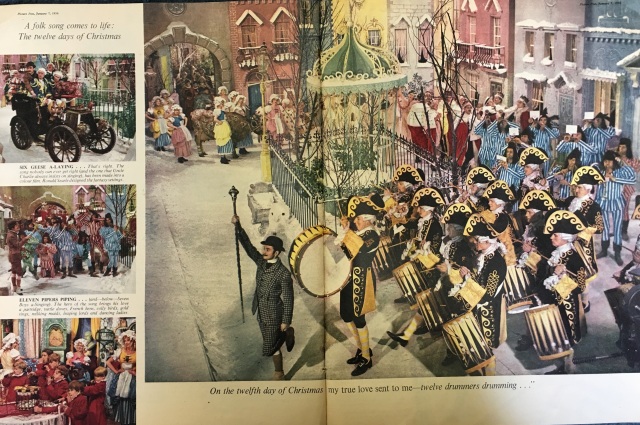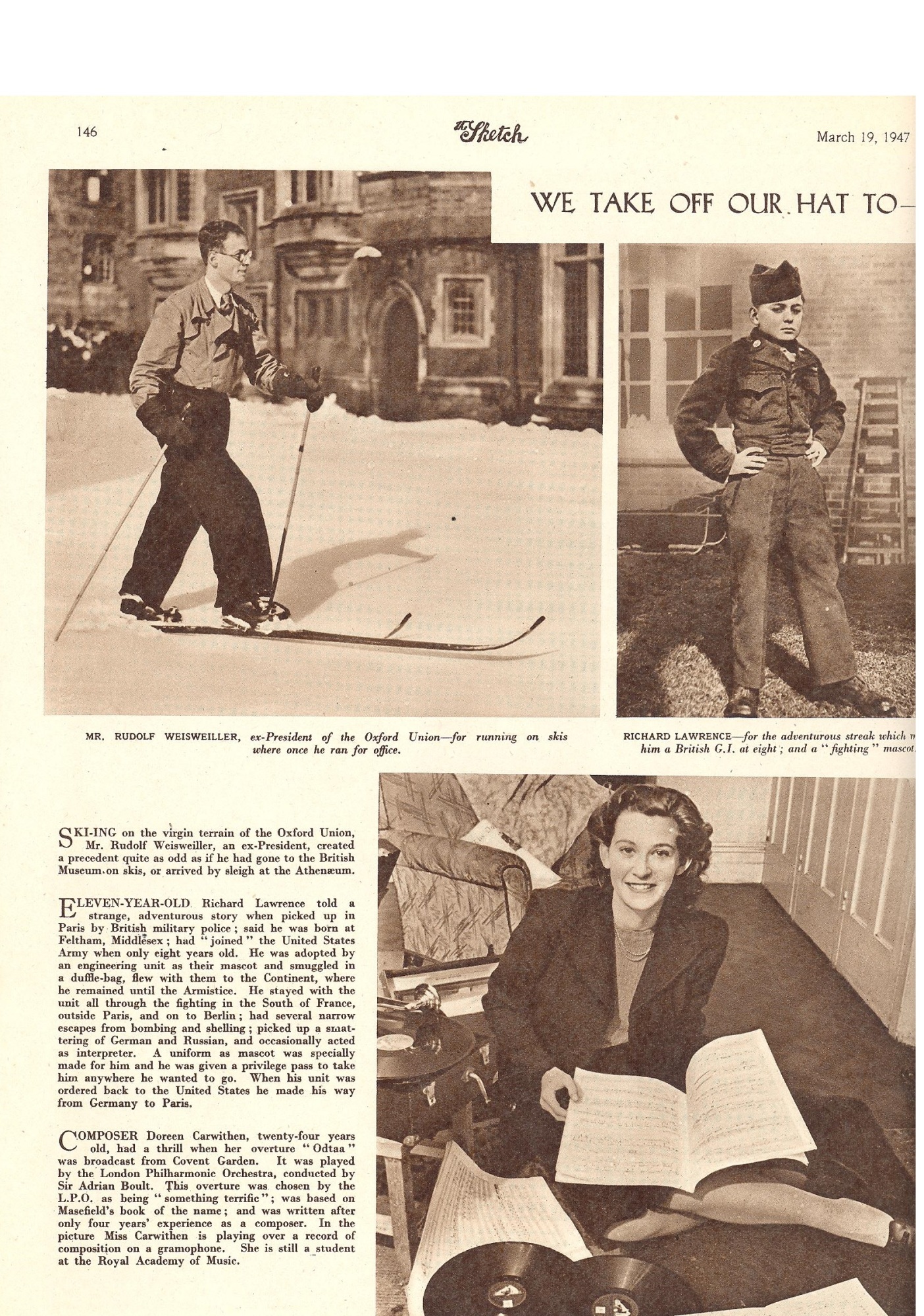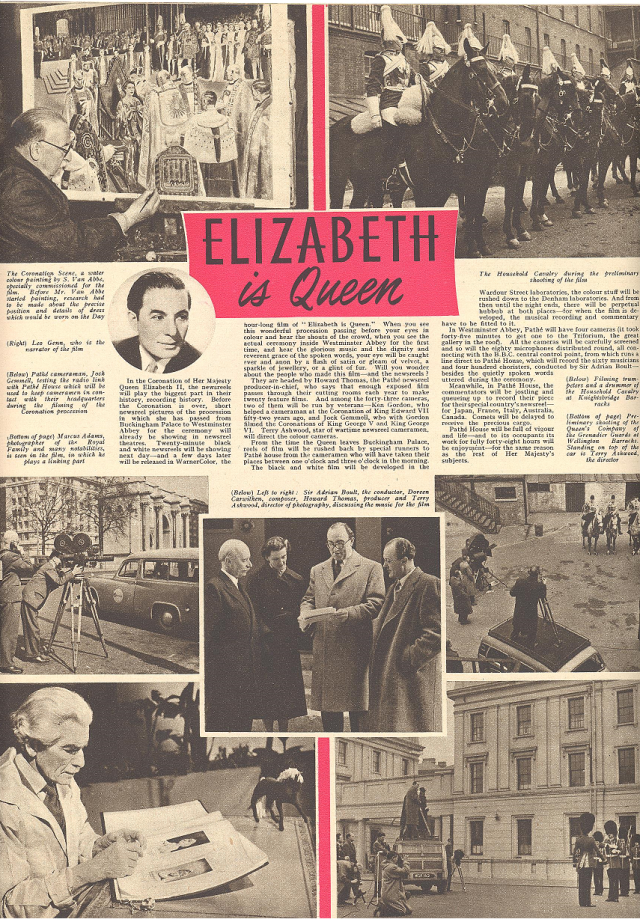Yes, she can...
A celebration of the work of Doreen Carwithen, aka Mary Alwyn, whose archive is also held here at Cambridge University Library. Previously published on the University Library's Music Department blog at MusiCB3...
Browsing through the Doreen Carwithen Archive the other day, I came across a selection of popular magazines from the mid-’40s-’50s, all of which featured Doreen.
Browsing through the Doreen Carwithen Archive the other day, I came across a selection of popular magazines from the mid-’40s-’50s, all of which featured Doreen.
As a young woman composing in what was then very largely a man’s world, she got a lot of attention from the press; though most journalists seemed to be less impressed by her work, than the fact that a woman was able to do it at all. The Dundee Evening Telegraph was fairly typical of the time in seeming more impressed that Doreen was pretty and curly haired, than that she had recently finished composing her first piano concerto aged just 24.
Nevertheless, presumably deciding that any publicity was better than none, Doreen continued to occasionally feature in the popular press, part curiosity, and part undoubtedly fine musician.

Her earliest appearance in a magazine in the archive is from The Sketch, dated 19th March, 1947. 1947 was to be quite a year for Doreen, she became the first person to be selected for a J. Arthur Rank scholarship. Around the same time she learned that ODTAA was the first work to be chosen by the London Philharmonic Orchestra’s Advisory Committee. ODTAA (One Damn Thing After Another), inspired by the John Masefield novel, was performed at Covent Garden by the LPO, conducted by Sir Adrian Boult.
The Sketch was thrilled, and featured Doreen in their spread “We take off our hats to…” which also included a skiing Oxonian, the latest child actor to play Richmal Crompton’s Just William, and an 8 year old G.I.

Sound magazine had a decidedly modern attitude towards female musicians. In the same month of Doreen’s ODTAA triumph, a wealth of musical women were celebrated including Doreen, Joan Cross, a dazzling soloist in a performance of Finzi’s Dies Natalis, and the rich depth of pianist Eileen Ralf’s playing. Eileen Ralf, an Australian pianist, became a big supporter and inspiration to composer, Peter Sculthorpe, while Joan Cross co-founded the London Opera Centre, and became one of the first female opera directors.
By 1953, the Rank Scholarship had led to many film scores. There would eventually be more than thirty, ranging from documentary shorts to feature length thrillers. One of Doreen’s proudest moments was being selected to work on the official film for the coronation Elizabeth is Queen. Many skills were needed for this, as the news-reel film of the coronation was spliced and edited at speed, with the music heard on the day being re-used where possible, along with bridging passages, and re-writes. All of this to a tight schedule too, with the aim being to premiere the official film within three days of the coronation. Doreen worked with Adrian Boult again, an old colleague from ODTAA days, and did a splendid job. Elizabeth is Queen went on to win a BAFTA Certificate of Merit.

A festive edition of Picture Post in 1956 celebrated Doreen’s latest film score, On the twelfth day. Directed by Wendy Toye, this was one of Doreen’s most enjoyable film relationships. She and Wendy Toye would work together again on Three cases of murder, having previously liaised on The stranger left no card.
Toye was an exceptional woman. She started her career as a dancer in Ninette de Valois’ original Vic-Wells ballet company, before moving into stage direction, where she worked on everything from musicals including the first UK production of Bless the Bride, and thrillers, to ballet and opera. She was an associate producer for Torville and Dean’s Ice show world tour, also working in film and television, and won the Best Fictional Short Film prize at Cannes in 1954 for The stranger left no card.
Do come and see the current pop-up exhibition celebrating Doreen Carwithen through magazines of the period. It runs in the Anderson Room until the beginning of June.
MJ

Comments
Post a Comment
Please feel free to ask questions or comment. Comments will be visible after moderation. Thank you.